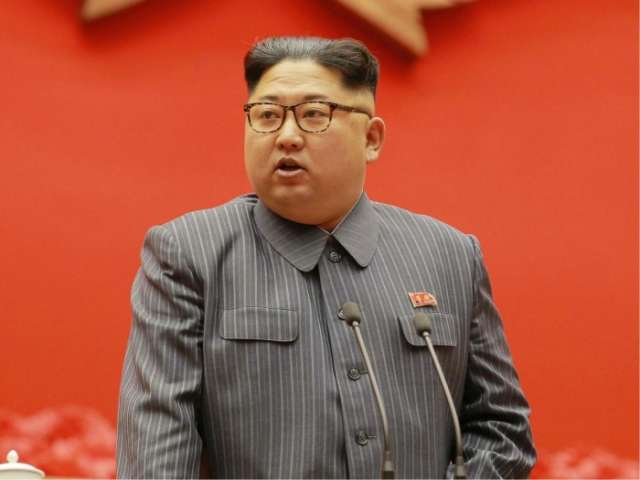The effort to turn back the clock on Pyongyang’s weapons program is entering a new and unpredictable period, after President Donald Trump accepted an invitation Thursday to meet with North Korean leader Kim Jong Un.
The first deal to halt North Korea’s nuclear program came in 1994 between the Clinton White House and Pyongyang, pledging to freeze and replace North Korea’s nuclear power plant with light-water reactors, while gradually normalizing relations between the two adversaries.
The deal broke down and was eventually scrapped by 2003 under George W. Bush, amid complaints from the U.S. that the North was cheating on the deal with a secret program to enrich uranium. The North, in turn, accused the U.S. of not following through on its end of the deal.
Joel Wit, a senior fellow at the U.S.-Korea Institute at Johns Hopkins University’s School of Advanced International Studies who was involved in the negotiations for the 1994 deal, called the announcement on Thursday “a historic opportunity to turn the corner away from not only the tensions of the past year but the 60 years of confrontation since the Korean War.”
The U.S. made a fresh attempt at diplomacy in George W. Bush’s second term as president, sending Ambassador Christopher R. Hill to the six-party talks to try to persuade the North to dismantle its nuclear program. The talks reached a breakthrough in 2007, when the North again said that it would take steps toward dismantling its nuclear program. But that deal eventually fell apart after the U.S. condemned a North Korean satellite launch in 2009, after which Pyongyang pulled out of the deal.
The U.S. has condemned the North’s satellite launches as a disguise for a long-range missile test.
“The negotiations are not always linear,” Mr. Hill said in an interview on Thursday, before the latest announcement.
A February 2012 accord between the U.S. and North Korea, the “leap day” agreement, also fell apart within weeks after the North launched another satellite to commemorate the 100th birth anniversary of state founder Kim Il Sung in April of that year.
Jonathan Cheng is the Seoul bureau chief for The Wall Street Journal, overseeing the Journal's coverage of the Korean peninsula, including North Korean politics, South Korean politics and South Korean conglomerates like Samsung, Hyundai and LG.
Read the original article on the Wall Street Journal.
More about: NorthKorea
















































